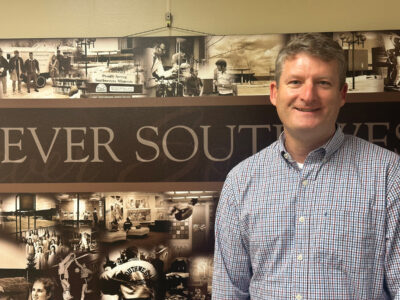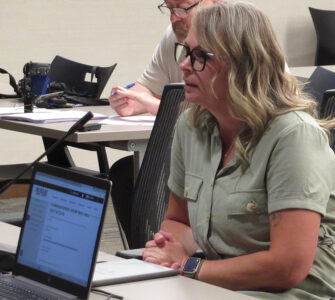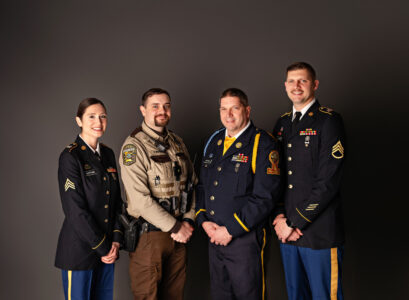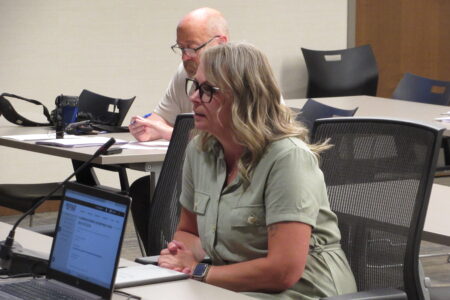Liquor license fees increase approved
MARSHALL — It was something the city of Marshall hadn’t done in decades. But after a hearing this week, the Marshall City Council approved increases to city liquor license fees.
Fees will be going up $500 for an on-sale liquor license, alongside increases for on-sale and off-sale licenses for 3.2% malt liquor, and an increase for temporary liquor licenses.
City staff said the increases would bring Marshall’s liquor license fees closer to average for a city its size. However, the proposal drew an objection from a local business owner, as well as criticism from a council member. The fee increases passed on a 5-2 vote.
The council held a public hearing on the liquor license fee proposal on Tuesday. City Clerk Steven Anderson said state law requires a hearing to increase liquor license fees, but not to lower them.
“From what I can tell, I don’t know the last time a public hearing was done in Marshall for an increase in liquor license fees. This is probably the first one in roughly 30 years,” Anderson said.
During that time, the city had lowered its fees a couple of times.
“Back in the ’90s, the liquor license was actually $5,000, and then in the early 2000s it was reduced to $4,200. In 2018, it was again reduced to $3,000,” he said.
The city was proposing to raise the intoxicating liquor license fee to $3,500, the 3.2% malt liquor off-sale license to $150, the 3.2% malt liquor on-sale license to $300, and the temporary liquor license to $75.
Anderson said liquor license holders were mailed letters about the hearing on June 12. A total of 15 businesses in Marshall have a liquor license, he said. There are also a total of 11 off-sale beer licenses, three on-sale beer licenses, and two wine licenses.
Council member James Lozinski said he wouldn’t support the license fee increases.
“What is the reason to increase it about 18%?” he said.
Anderson said members of the council Ways and Means Committee looked at bringing Marshall’s liquor license fees more in line with other Minnesota cities its size.
“When the Ways and Means Committee looked at it, we were looking at roughly the 12,000 to 18,000 population,” Anderson said. “Marshall’s liquor license is about $500 below the average. So that’s why they decided on the $500 increase, to get it to at least the average of all the other cities that are roughly our size.”
Materials in the council’s agenda packet showed a comparison of Marshall with 15 other Minnesota cities in that population range. The average liquor license cost for those cities was $3,515.63.
The agenda materials also included a comparison of area cities, including Willmar, Redwood Falls, Cottonwood, Pipestone, Tracy and Montevideo. The average liquor license cost for those six cities was $2,300. Willmar’s liquor license fee was $4,000.
In addition, most other cities also had an additional investigation fee for liquor license applicants, while Marshall does not, Anderson said.
“I’m not opposed to being the lowest one, to help our private businesses. I know that some of these businesses are still struggling,” Lozinski said. “I don’t think it’s bad to be the lowest one on fees.”
User fees were “just a hidden tax,” Lozinski said. “I’d rather keep (the businesses) in town than have them close.”
Anderson said the city had also received an e-mailed objection from business owner Matt Schnoor. He read Schnoor’s message aloud for the record.
Schnoor wrote that while population size was one way to compare cities, it was only part of the picture. He said it would also be relevant to look at how many liquor licenses those communities were issuing per 1,000 residents.
In his e-mail, Schnoor also said in the past, business owners did not get a clear answer from the city as to what kinds of costs the city incurred from bars and businesses with liquor licenses.
Marshall City Administrator Sharon Hanson said that there are police calls to businesses with liquor licenses, although she didn’t have data ready at the hearing. She said background investigations also carry a cost, although city doesn’t charge license holders a separate fee for them.
“It’s interesting. We’ve had this discussion on food trucks and looking at fees for food trucks, and looking at requests from established license holders who have some of these similar licenses, who said we should charge a higher fee,” Hanson said.
She said the increased liquor license fees “create a much fairer market, in addition to paying for services of what we do as a city.”
Hanson said in the case of liquor licenses, it was also more appropriate to have a fee-based system instead of paying for those costs through general property taxes. The licenses serve only the portion of the public who choose to drink intoxicating beverages.
A resolution approving the liquor license fee increases passed 5-2, with council members Lozinski and Steven Meister casting the votes against.




